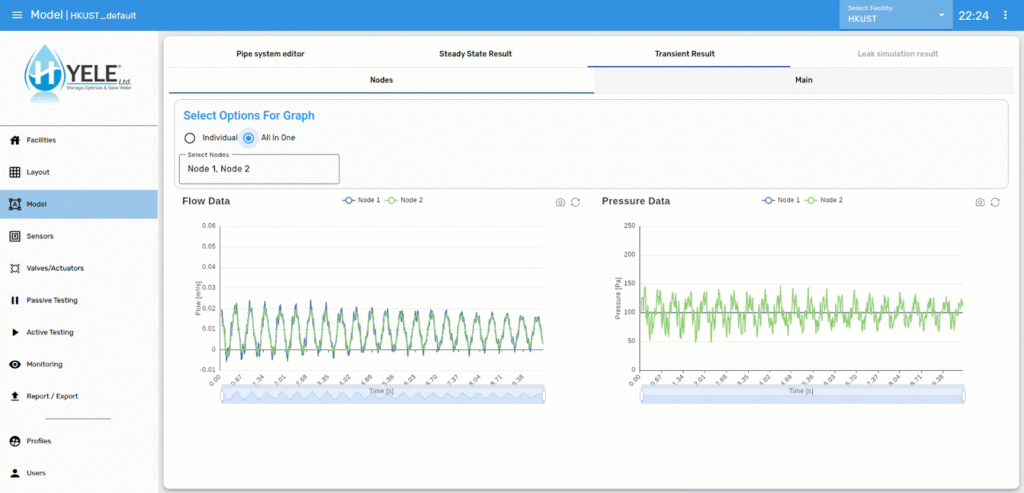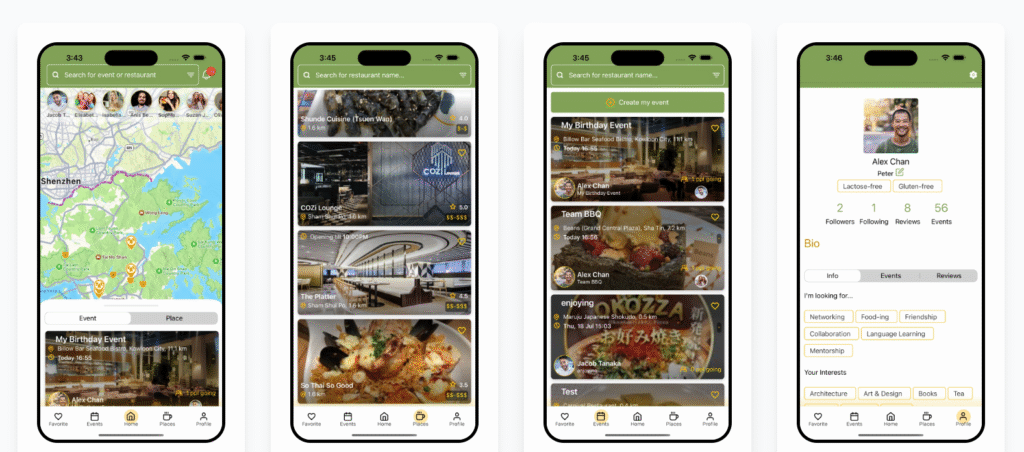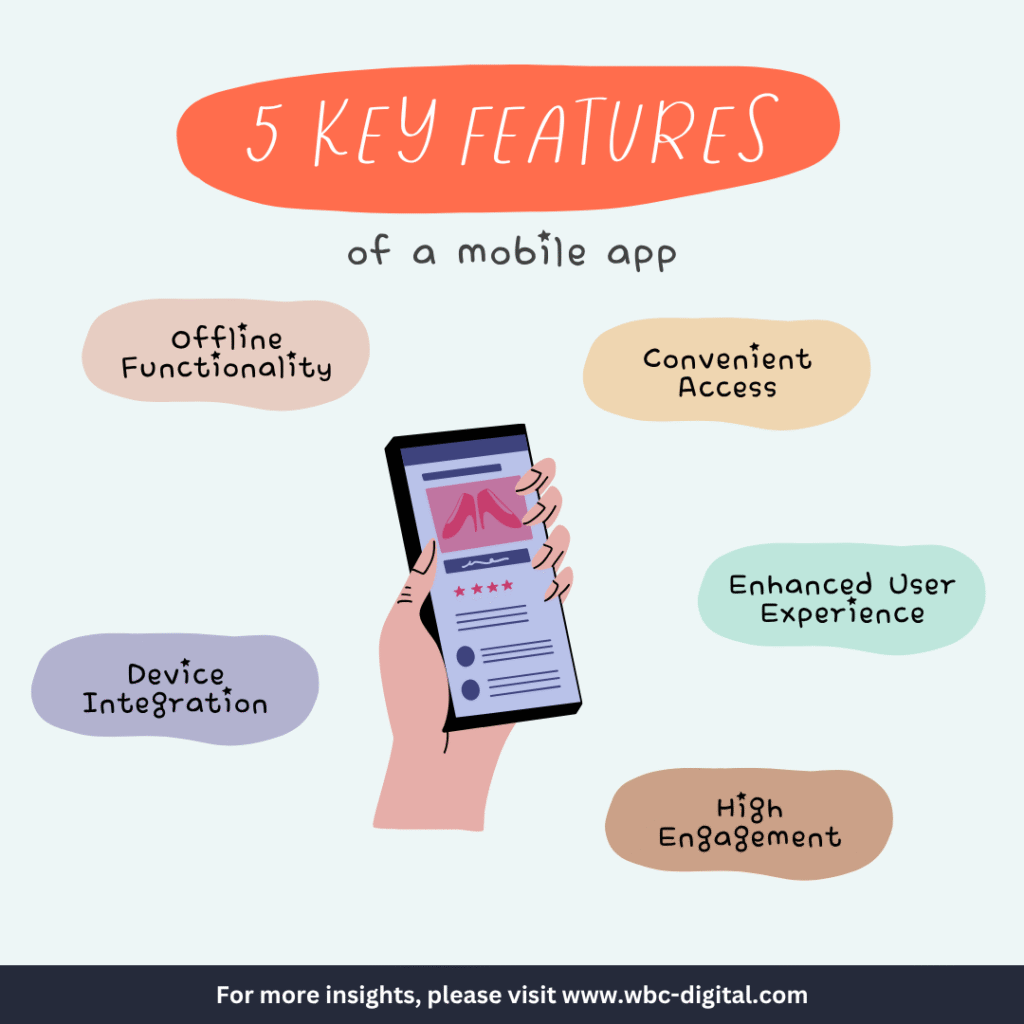Web App or Mobile App? How to Pick the Right One for Your Business
Author: Zahra Hassan
If you are looking to build an app to expand the online presence of your business, the very first question that would pop in your head is which one to choose: web app or mobile app?
Although the question seems very easy to answer, there are several things to consider. From knowing the differences to understanding the essentials of web and mobile development, it’s all down to what works best for your business.
In this article, let’s explore some key features of web and mobile apps, understanding their differences, and what factors to consider to make the right decision for your business.
What is a Web App?
In simple terms, a web app is a software application that runs in web browsers without having the need to install it on a device. All you need is just a URL to access. Besides, unlike websites which are more about static content, web apps offer a high level of interactivity with more functions like collaboration, data-sharing features, etc.
Here’s an example of a web app we built recently for Hyele Ltd. They specialize in advanced technologies for assessing and managing urban water pipeline systems. The web app we built facilitates to run simulations, real-time detection of leaks, bursts, blockages, and malfunctioning devices, allowing them to take swift action and measures as and when required.

What is a Mobile App?
Mobile app is also a software application, but it’s specifically designed to run on devices like smartphones and tablets. It requires installation and often has offline capabilities, which can be downloaded from app stores like Google Play or Apple Store. A mobile app focuses more on enhancing a user’s experience by leveraging a device’s native features like GPS, camera, accelerometer, etc.
Here’s an example of a mobile app we built recently for LunchBuddy.Club. It’s a social app to bring food lovers together. The app facilitates connecting and socializing with like-minded people to create memorable dining experiences together. You can browse nearby restaurants, find people to meet and connect, and create events to have lunch, dinner, coffee, etc. together. It uses a device’s GPS and other native features to enhance a user’s experience via the app.

Key Features of Web Apps

Let’s take a look at the top 5 key features of web apps:
- Highly Accessible: The biggest advantage of web apps is that they can be accessible from any device without having the need to download and install. Since web apps don’t depend on any device’s built-in features, it makes it universally accessible no matter from which device you are accessing it from – be it a computer, laptop, a mobile or a tablet; the world is yours. 🙂
- Platform-independent: Since web apps can be accessed from any device, it also means that it doesn’t require different versions to be compatible on different devices. Developers just need to create one version, and it works across multiple platforms making it easier to develop and maintain, enabling cross-platform compatibility.
- Real-time Updates: Web apps totally eliminate the need to download or install updates as they are hosted on servers. So any upgrade or changes made by developers will be immediately available to their users.
- Cost-efficient: Since web apps are straightforward and easy to launch with immediate updates, it is usually cost-efficient, as there is no need to build and maintain separate versions for each operating system.
- Easily Scalable: Web apps are easily scalable without having the need to make massive structural changes to the app. This is crucial to avoid disruptions in your service if you happen to get a huge influx of users within a short period of time.
Key Features of Mobile Apps

Now let’s dive into the top 5 key features of mobile apps:
- Offline Functionality: One of the unique features of mobile apps is that most of them offer offline functionality enabling uninterrupted services from anywhere, anytime.
- Convenient Access: Since apps are usually fast-loading, and the content and features are tailored to make it accessible on different devices, it is very convenient for users to browse through and use apps without any hassle.
- Enhanced User Experience: Mobile apps are designed to learn and adapt to their users based on their preferences, purchase history, search history, etc. This enhances a user’s experience by offering personalized content and functionalities as if the app is meant for them.
- High Engagement: Apps can offer more personalized features and interactive elements like push notifications to keep users engaged with a business regularly. High engagement = Increased sales.
- Device Integration: Mobile apps are usually built to integrate with a device’s native features like camera, sensors, GPS, etc., offering unique functionalities and capabilities for a full-on user experience.
Web App vs. Mobile App: Key Differences
Now we have a fair idea on the top key features of web and mobile apps. Let’s take a look at some differences between web and mobile apps based on accessibility, usage, cost, etc.
Web App or Mobile App: Which is Right for Your Business?
Here are 5 questions to consider before making the decision:

- What’s your goal?
What are you looking to achieve by building an app for your business? If it is to boost user engagement by offering a more personalized user experience, then a mobile app is the right choice for you. But if your goal is to have an all-in-one solution that offers wider accessibility, then building a web app would be the best option for you.
For example, Hyele Ltd.’s goal is to have a unified platform that could be instantly accessed from any device to monitor their urban water pipeline systems, so building a web app was the right decision for them.
On the other hand, Lunch Buddy’s goal is to offer a more personalized user experience to bring food lovers together, so they decided to build a mobile app that best fits their business’s needs.
- Have you done your market research?
It’s very important to research your target audience, competitors, and market trends to understand what users are looking for and what they need from your app. Understanding your target audience’s preferences, behaviours and their technology usage can have a direct impact on your decision to choose the right app for them.
For example, if your target audience are mostly users who prefer using mobile devices for all their online activities, choosing to build a mobile app is the right decision for you. But if your target audience prefers using desktop or broader screens, then building a web app is the right choice for you.
- What are your budget considerations?
If you are on a tight budget, consider building a web app first, as you don’t need to allocate a big budget to build different versions, which makes it a cheaper option to build and maintain. Again, it depends on your app’s goals as well. If it’s more about offering a customized user experience that heavily depends on a device’s native features like camera, GPS, push notifications, etc., then you may consider choosing one operating system like iOS or Android to build and expand later.
If you have a flexible budget to hire developers and build full-featured mobile apps, and your goal is to offer an enhanced user experience, then all you need is a gentle push to make it happen. 🙂 - Are you ready to handle ongoing maintenance and updates?
There are two things to consider here. One is, if your app demands frequent updates and you don’t want to keep updating all different versions of the app, then choosing to build a web app is better for you, as all updates are centralized and done on servers. Besides, updates are immediately available to your users without having to wait for app store approvals all the time.
The second thing is about requiring updates whenever a new version of a mobile operating system gets released. This may incur more costs to maintain compatibility and performance across all different mobile devices that also includes new hardware features as well. If you are ready to handle such updates and maintenance, and you have the budget to do so, then why the wait?
- How fast do you want to hit the market?
It’s best not to wait too long before you give your idea a real chance. You don’t need to keep building your app for a year or even six months. At WBC Digital Solutions, we help you build an MVP focusing on the core features of your app to validate your business idea first. You can then test it with a handful of users, improve it based on their feedback, and decide when and how you’re ready to go for a full-scale version. This will increase your chances of success whether you choose to build a web app or mobile app.
Final Thoughts
In a nutshell, your decision depends on what’s feasible for your business and its long-term vision. Whatever decision you make, always ensure your customers’ needs are met in the most efficient way possible.
If you have made your decision and you are ready to build your app, we at WBC Digital can offer you the best solution based on your budget and needs. No matter how complex your project is, our world-class developers can design and build it for you from scratch. Just book a free consultation with us, and we will walk you through the process of getting it done for you.
WBC Digital Solutions
Book a Consultation
Ready to take the next step? Schedule a consultation with our expert team.
Explore Related Topics
Other Articles

AI in Industrial IoT: How It’s Revolutionizing Asset Management
Exploring AI in asset management? Discover its growing role, industry impact, and what it means for the future of business.
Read more →
WBC Digital and RAND INC Join Forces to Turn Great Digital Products Into High-Growth Businesses
WBC Digital and RAND INC Limited are teaming up to combine expert software development and performance marketing.
Read more →
Digital Twins + AI: The Future of Smart Manufacturing and Operations
Let's explore how Digital Twins powered by AI are redefining the future of smart manufacturing.
Read more →